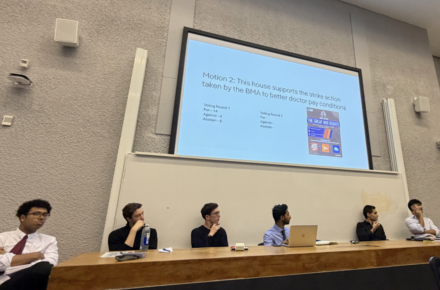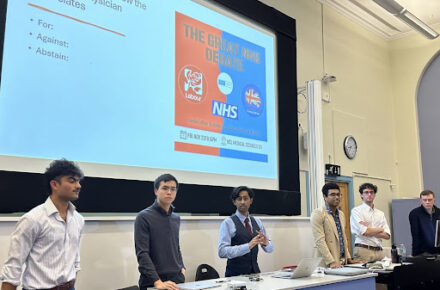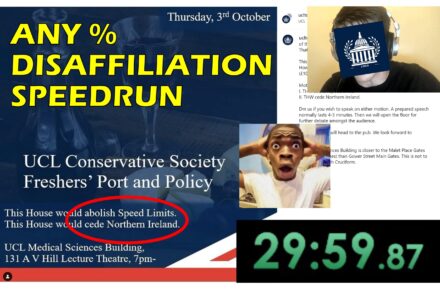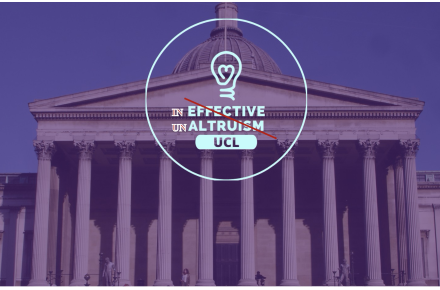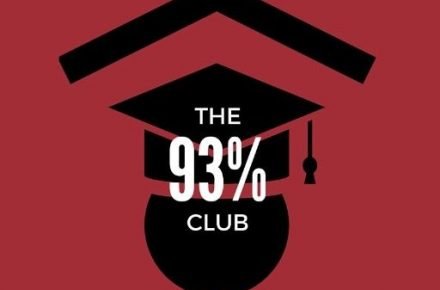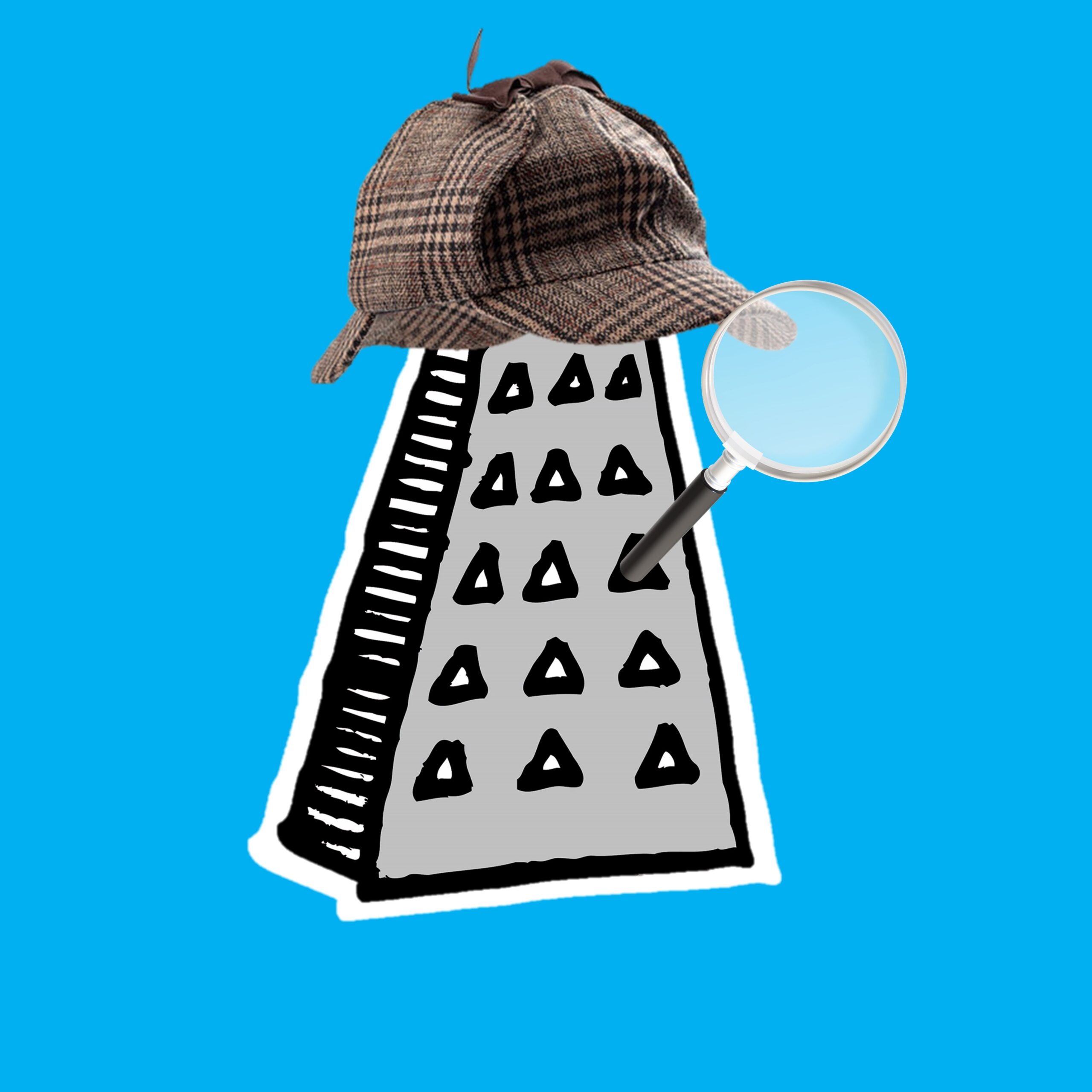
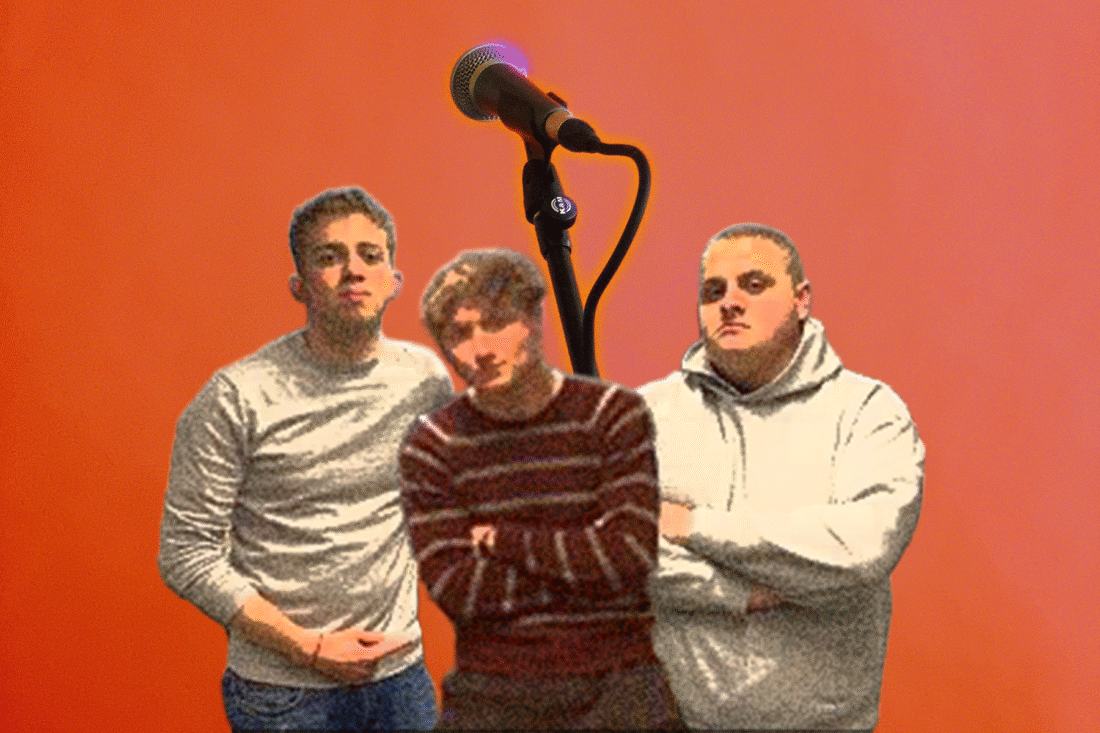
Student radio is often viewed as a relic of the 1990s. Indeed, student radio stations across the country have experienced a decline in popularity, contingent on all the obvious stuff like Apple Music and Spotify.
Whilst this general downward trend has become the salient measure of student radio, a quiet renaissance has emerged on UCL’s very own Rare FM.
Best characterising this moment is the show The Man Group, so we decided to speak to the hosts about all things University, Union and student-related.
Hosted by fourth-year historians Nic Schneider, Leo McGurk, and Josh Flowers, The Man Group is not another Andrew Tate-worshipping, Adolescence-bashing, Joe Rogan rip-off. Indeed, it is quite the opposite.
Inspired by their previous, though “unserious”, dalliance in student radio, The Man Group has been streamed live to the UCL community every Tuesday for the last few months. Deriving its name from the investment firm Man Group plc — described as a “strange corporate thing” — where Nic had applied for a grad scheme.
The Man Group traverses a variety of student-centred topics, with the trio providing funny conversations reflecting on the most essential elements of the student experience to a dedicated listener base, interacting with live text-ins whilst remaining, in their words, “a bit serious”.
“A lot of planning goes into it”, Josh told The Cheese Grater, with planned segments, host intros, and even a soundboard. Perhaps the most notable is Fight the Power by Public Enemy, which introduces the show’s campus news segment. Focusing on how the biggest events on campus have impacted them that week, the segment is a refreshing alternative to the oftentimes serious tone of the University’s publications.
Leo said: “It is quite tongue and cheek, but [the segment] comes from actually being pissed off with UCL… I felt like I’m not getting a great experience for £9,000 a year”.
It was this shared sentiment that prompted the trio to focus on campus news (alongside world news topics) on their show. Whilst some of it can be “really anticlimactic” according to Josh, The Man Group’s focus on UCL issues has certainly struck a chord with listeners, with their show quickly becoming the most popular on Rare FM.
The Man Group also covers the more rudimentary elements of student living, including a segment rating student flats, which caused some controversy. They rank the flats they visit during parties on everything from the state of their fridge to overall hygiene, with Nic saying this segment is their most popular. “It’s why people listen”, he said. “If we’re reviewing someone’s flat, [listeners] want to know what we scored.”
Leo told The Cheese Grater of his year abroad at Canada’s University of British Columbia, where student radio and student life in general are much more of “a thing”. He remarked that “The student newspaper was available in the corner shops and the ice hockey games were massive”.
They all noted the improvement of student life at UCL this year, with events like Varsity 2025, but also said that it’s “hard to achieve” the same level of student community at UCL.
Whilst there is the “Jazz Night, Sports Night dichotomy”, Josh said the idea that so many people are international students, commuters, or simply disinterested in UCL affairs makes having a coherent student community difficult.
The Man Group represents a rallying against this dichotomised, or indeed mostly absent, student community, with their focus on issues, experiences and stories that are relatable to the whole student community.
Whilst its hosts will graduate this year, their championing of a renaissance in UCL student radio will hopefully continue, and I think many of their regular listeners hope for the emergence of a new informal talk show that covers all the things pertinent to the lives of UCL students.
This article appeared in CG92

